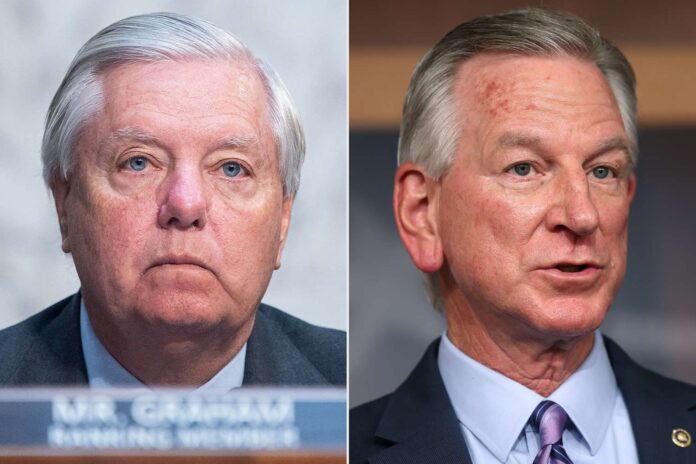Senator Tommy Tuberville’s recent blockade of military promotions has not only stirred a heated intraparty battle and sparked a debate over Senate rules but has also raised alarms regarding national security. By holding up more than 160 military promotions, Tuberville’s actions have been criticized as potentially endangering the nation’s security at a time when global threats require a fully staffed and ready military leadership.
The delay in confirming key military positions could have significant repercussions for the operational readiness of the U.S. Armed Forces. These promotions are critical for maintaining a chain of command that is essential for effective military operations. The impasse has led to concerns that the absence of confirmed leaders could hinder the military’s ability to respond to international crises, manage ongoing operations, and develop strategies to counteract global threats.
Critics argue that the blockade serves as a stark example of how individual senators can leverage Senate rules to exert influence over national policy, sometimes at the expense of the country’s well-being. The power to delay or block legislation and nominations, while a safeguard against hasty decisions, is also a tool that can be misused, potentially compromising the nation’s readiness and defense.
Senator Tuberville’s linkage of his stance to issues such as crime rates and immigration has been seen as a diversion from the critical matter at hand: ensuring that the military is equipped with the leadership it needs to protect the country. The controversy has thus highlighted the need for a balance between individual senatorial privilege and the collective security interests of the United States.
As the Senate and the nation grapple with the implications of Tuberville’s blockade, there is a growing call for a review of the rules that allow for such standoffs. The incident has underscored the importance of a prompt and efficient nomination process, particularly for positions vital to national security, and has sparked a conversation about the need for reform to prevent the endangerment of the nation’s defense capabilities in the future.
This addition emphasizes the national security dimension of the issue, highlighting the potential risks associated with delays in military promotions and the need for a balance between Senate rules and the security needs of the nation.











